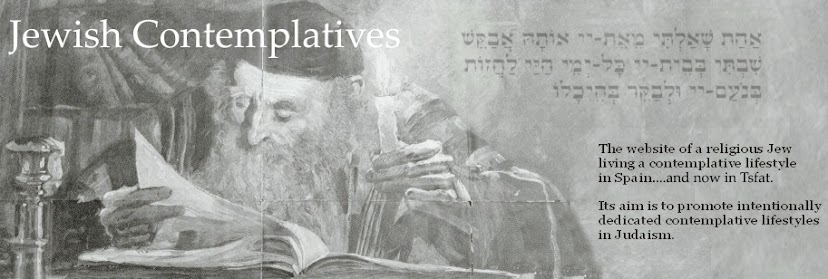When we say Azamra l’El-kai b’odi –“I will sing to G-d with the little I have left” (Tehillim 146:2)— we are not referring to any lack of skills or about depleted resources. We are making a statement of mature experience.
Tomorrow is Shabbos Shirah (the Shabbos of Song) which commemorates the song recorded in Parshas Beshalach at the crossing of the Sea of Reeds) It is also the minor festival of Chamisha-Osor beShvat (The New Year for Trees, sometimes called Tu B’Shvat).
Our contemplative journey is the Song which makes the Tree of Life sing.
As we grow older our needs and our aims change. Things which were central to our contemplative practice often become peripheral and we may often be surprised to find that the converse becomes true. Most surprisingly, despite our age and experience, we may even find ourselves “singing a new song.” Such change is not necessarily the product of inconsistency or flightiness. If we are engaged in a search and making a journey which is “for the sake of Heaven”, it can be like the healthygrowth of a tree with its branches, leaves, and fruit.
It can also be like the composition of a Song. Like a Symphony, it has its themes and its developmental form. We present the main themes in the “Exposition Section” of our early spiritual lives, find them tried and tested in the “Development Section”, and at some point we return to a transformed statement of the original themes in the “Recapitulation Section”.
We “sing to G-d with the little we have left” once we have experimented, experienced, and been transformed by the contemplative process—and by Life itself .
So what is this “little” that we find ourselves left with?
The Torah which was/is given at Sinai is unique but it also has seventy faces. It is received by each of us in accordance with our own diversity of understanding and perception. We all hear the same “text” but according to our own ability and level of understanding. As the Torah is also written on each of our individual hearts, the contemplative process is similarly something which is entirely personal and uniquely received. When we have done all we can to exhaust our own skills and abilities in the understanding of its depths, and been stripped of all our false understandings—what we are left with is still something that is highly personal. It is our own unique Song.
As each of us treads our path up Mount Horeb— the little bit which we are asked to distil from the story of that journey is the act of identifying “what exactly it is that I am called to do and be”.
As I hinted at the start of this little commentary, that sometimes involves a re-adjustment of things we have had all along but not seen, or it may involve a change in direction.
But what is certain is this: It is called a “little” bit because it emerges or blossoms because we have been spiritually pruned of excess growth. It is “small” because we have been alchemically “reduced” to our most essential features. For a contemplative Jew....that moment of self-discovery is paradoxically a moment when we lose our self-focus and the “task”, or the Transformed Theme takes over.
And what do we do?
We echo the words of Moses and the people of Israel at the Sea of Reeds and sing:
“Who is like You?” (Shemos 15:11)
The silent but deafening answer of the heavens is the knowledge that there is none like G-d, and that insight draws us away from self-focus to focus on Him—and there is no place devoid of Him.
Our song is the beginning of our realising that our little contribution is not our “contribution” at all, it is simply our being released from being seed-like and husk-enwrapped in earthy confinement—to burst out and blossom in the light-drenched heights above. “There is none like our G-d”: He creates us as a tiny yet essential cell in the Tree of Life, fed and watered in every moment by His own Will, and “singing the song” of His own Name.
N.R.Davies
January 25 2013

